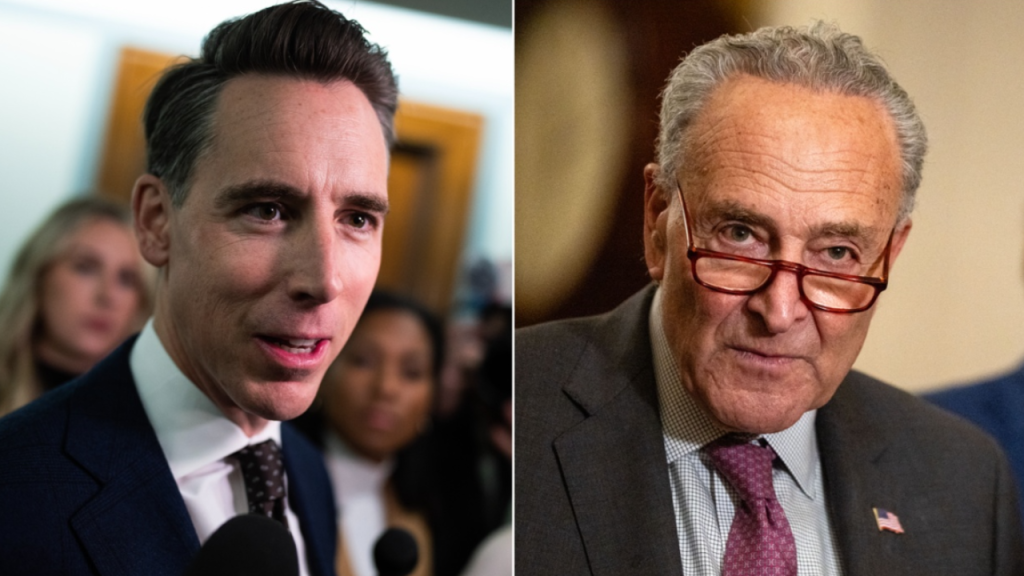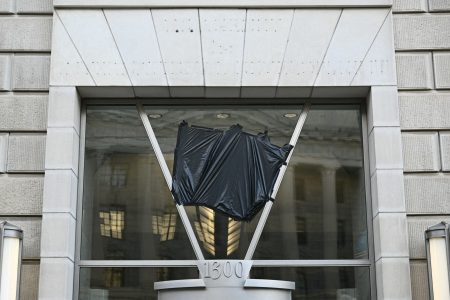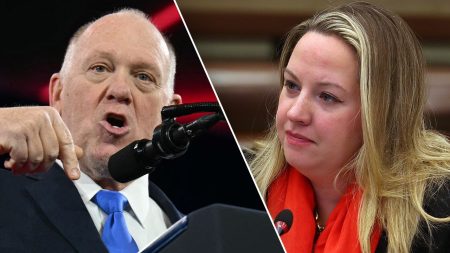The failed Senate confirmation of Lauren McFerran to a new term as chair of the National Labor Relations Board (NLRB) has ignited a wave of celebration among Republicans and conservatives, who view the outcome as a significant victory for their pro-business and anti-regulation agenda. McFerran, a Biden appointee, would have retained Democratic control of the NLRB until at least 2026, a prospect that drew sharp criticism from conservatives who argued the incoming Trump administration should have the authority to shape the board’s composition and direction. The 50-49 vote against ending debate on McFerran’s re-appointment effectively blocked her confirmation, with two key Democratic senators, Joe Manchin and Kyrsten Sinema, siding with Republicans.
This outcome is being framed by Republicans as a win for “working Americans” and a rebuke of what they characterize as the Biden administration’s anti-business policies. Figures like Senator Josh Hawley lauded the vote as a step towards supporting policies favorable to working families and expressed anticipation for collaborating with the incoming Trump administration on pro-worker initiatives. Conservative groups like Americans for Tax Reform echoed this sentiment, criticizing McFerran’s record and accusing her of undermining freelancers, harming businesses, and enabling union harassment. They portrayed the blocked confirmation as a victory against Democratic overreach and a safeguard for American workers and businesses.
The Republican narrative emphasizes the importance of allowing the incoming Trump administration to select NLRB nominees aligned with its agenda. They argue that the attempt to confirm McFerran during the lame-duck session was a partisan maneuver to deny President-elect Trump his prerogative to shape the board. Senator Bill Cassidy celebrated the Senate’s rejection of what he termed a “partisan attempt” to undermine the incoming administration’s pro-worker agenda. Conservative commentators, like Carrie Sheffield of Independent Women’s Voice, framed the vote as a defeat for opponents of free speech and a positive development for Elon Musk, linking McFerran’s perceived anti-business stance to broader cultural and political battles.
Republican frustration with the confirmation process was further fueled by Senator Bernie Sanders’ refusal to hold a public hearing on McFerran’s nomination before advancing it. This procedural move, along with McFerran’s previous NLRB rulings against figures like Elon Musk, further solidified the Republican perception of her as an anti-business figure. Musk himself weighed in on the matter, criticizing the administration’s perceived inefficiency and expressing his support for Dogecoin, seemingly referencing the broader context of technological disruption and innovation as a counterpoint to regulatory hurdles. The specific incident involving Musk relates to an NLRB order, later overturned, requiring him to delete a tweet deemed harmful to unionization efforts at Tesla.
The NLRB’s unique structure, where members cannot be easily removed by the president except for specific causes like neglect of duty or malfeasance, adds another layer to the political significance of this confirmation battle. By blocking McFerran’s re-appointment, Republicans have effectively left two seats on the board open for the incoming Trump administration to fill, potentially shifting the balance of power and influencing the board’s direction for years to come. This outcome underscores the strategic importance of NLRB appointments and their potential impact on labor relations and business regulations.
The Democratic response to the failed vote highlighted the stark contrast in perspectives on this issue. Senate Majority Leader Chuck Schumer had argued that supporting McFerran’s confirmation was essential for protecting working families and addressing income inequality. He framed the vote as a choice between supporting workers’ rights and siding with overreaching employers. Following the vote, Schumer expressed deep disappointment, characterizing the outcome as a direct attack on working people and a rejection of a qualified nominee with a strong record of protecting worker rights. This clash of narratives underscores the deeply partisan nature of the debate surrounding labor relations and the role of the NLRB in balancing the interests of workers and businesses.










